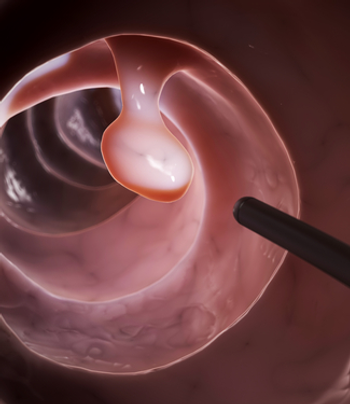
Former chairs of the USPSTF are questioning whether it may be time to alter the relationship between the USPSTF and determinations of preventive services coverage under the Patient Protection and Affordable Care Act.

Your AI-Trained Oncology Knowledge Connection!


Former chairs of the USPSTF are questioning whether it may be time to alter the relationship between the USPSTF and determinations of preventive services coverage under the Patient Protection and Affordable Care Act.

A new study has found that the price of older drugs increased more between 2010 and 2015 than that of newer drugs, with some having undergone dramatic price increases.

Prediagnosis obesity as measured by body mass index was a risk factor for overall and individual secondary primary cancers in a study of male cancer survivors.

Are you up to date on the latest FDA approvals in advanced breast cancer? How about the latest findings presented at this year’s ESMO Congress?

Do you know what factors increase the risk of melanoma? How about the ins and outs of T staging? Test your knowledge on these topics and more in our latest quiz.

Likely, most doctors would say they are good listeners. It is an essential skill when studying and practicing medicine. But under stress of limited time or a patient not responding to treatment-maybe our ability suffers a bit. Perhaps we are listening but also talking and not checking for understanding.

Colonoscopy screening is modestly effective for preventing colorectal cancer in patients aged 70 to 74, but the benefits may begin to diminish after that.

More than 80% of patients referred for consideration in a phase I clinical trial were still willing to participate after a consultation where they learned more about trial participation.

Pneumonitis occurs in approximately 5% of cancer patients treated with anti–PD-1/PD-L1 immunotherapy agents.

Are you up to date on the latest incidence and mortality numbers in melanoma? How about radiotherapy and drug interactions? Test your knowledge in our latest quiz.

The dilemma for clinicians is how best to understand and manage this rapidly growing body of information to improve patient care. With millions of genetic variants of potential clinical significance and thousands of genes associated with rare but well-established genetic conditions, the complexities of genetic data management clearly will require improved computerized clinical decision support tools, as opposed to continued reliance on traditional rote, memory-based medicine.

Panel testing has important advantages but is being misused due to payer constraints and laboratory marketing pressures. Much testing is haphazard and results in utilization of limited genetic counseling resources in the discussion of variants of uncertain significance and low-penetrance gene mutations.

Current guidelines recommend antimicrobial prophylaxis with fluoroquinolones in patients at high risk for infection-related morbidity and mortality, but this practice provides a short-term benefit to individual patients.

In this interview we review recent breast cancer screening guidelines from the ACS and USPSTF, and discuss the changing way that early-stage breast and prostate cancers are being treated.

Patients with advanced cancer treated with the peripheral μ-opioid receptor antagonist methylnaltrexone had longer overall survival.

Survivors of childhood cancers are at significantly increased risk of cardiotoxicity if treated with anthracyclines, according to a new review of the literature.

Cancer screening recommendations for organ transplant recipients are inconsistent across international clinical practice guidelines, according to a new study.

Many patients who receive prescription drugs get them from dispensing physician practices. Since 2006, these dispensaries have participated as in-network providers for various Medicare Part D pharmacy networks; however, now physician dispensaries are in danger of being reclassified as out-of-network.

Are you up to date on the known risk factors for multiple myeloma? How about the latest findings presented at this year’s ASCO meeting?

The International Agency for Research on Cancer Working Group recently released an updated evaluation of evidence connecting body fatness and cancer.

A new study found that 86% of NCCN guideline authors had at least one reported financial conflict of interest.

The incidence of early-stage prostate cancer in men 50 years and older continued a decline reported earlier, with lower rates in 2013 compared to 2012. This is a likely result of the October 2011 recommendation from the USPSTF against routine PSA testing in all men.

A largely self-administered comprehensive geriatric assessment can be used to create a deficit-accumulation frailty index in cancer patients undergoing chemotherapy.

In this Medical News Minute, developed exclusively for Cancer Network, Dr. Bobby Lazzara discusses a recent study that compared EndoPredict and Oncotype DX, which both predict the likelihood of a breast cancer recurrence.

This article will address changes in CINV guidelines over the past 5 years and provide updates on recently approved agents and agents that are expected to be approved, based on published phase III trials. It will also explore other factors affecting optimal CINV control, including the role of patient-related risk factors and the role of physician adherence to antiemetic guidelines in reducing the residual risk of CINV.

Beyond the current recommendations for management of chemotherapy-induced nausea and vomiting, recent research has shown significant improvement in emesis control with use of triplet therapy using dexamethasone, an NK1 receptor antagonist, and a 5-HT3 receptor antagonist in patients undergoing non–anthracycline-plus-cyclophosphamide-based moderately emetogenic chemotherapy.

Bone metastases are common in advanced breast cancer, and may be associated with serious morbidity, including fractures, pain, nerve compression, and hypercalcemia. Through optimum multidisciplinary management and the use of bone-targeted treatments, patients with advanced breast cancer have experienced a major reduction in skeletal complications, less bone pain, and an improved quality of life.

It is quite obvious that bone morbidity has a negative impact on our patients with breast cancer. The use of bone-modifying agents in this setting can yield significant quality-of-life benefits.

In this interview we discuss PSA screening for prostate cancer, the compromised results of the PLCO trial, and more.

The relationship between oncologists and their patients is labor-intensive and arouses great emotions. The specter of death is always in the shadows; as it waits patiently, it makes conversations poignant. Oncologists should be skilled in soothing the fears of their patients without appearing trite or patronizing.